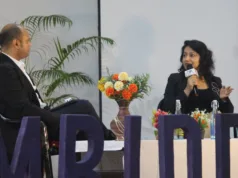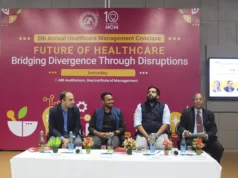Consider this. Of every 100 Goans, more than 13 are currently unemployed, according to data released in August last year by the Centre for Monitoring Indian Economy (CMIE).
The alarming statistic provides an appropriate backdrop to underline the significance of World Youth Skills Day (July 15), in a state where there appears to be a chronic mismatch between available vacancies and the lack of required skill-sets among Goan youth, a gap that can be addressed through strategic and sustained skilling efforts.
According to Dr. Pravat Surya Kar, associate professor, marketing, at Sanquelim’s Goa Institute of Management (GIM), the Global Skills Gap Report 2021, compiled by Udemy, a leading global edu-tech entity, says that skill gaps in India impact more than 76 percent of the employees and, if ignored, can turn India’s demographic dividend into a dragging liability.
He further states that if employers invest in upskilling their employees, despite the time-consuming nature of the exercise and resource allocation challenges, the results can be very rewarding.
“Overall, we have an interesting phenomenon where the majority of the firms neither have provisions for upskilling their employees nor do employees expect much from them. However, upskilling requires time, effort and resource allocation. The benefits, however, are undeniable when done right. Upskilling benefits employers, employees and society in general,” says Kar, who was part of a multi-state study conducted by GIM, Goa’s top B-school, to understand the perspectives of employers and employees on addressing persistent skill gaps.
Siddharth Savkur, CEO of the Verna-based Kamaxi Group, underscores the rising demand for skilled workers in India’s hospitality sector, while addressing the need for the youth to upskill themselves adequately to avail of the opportunities.
Savkur highlights a critical training shortfall in the hospitality sector, noting that despite the need for three million additional workers by 2028, only one percent of interested youth in India have formal training, citing the Tourism and Hospitality Skill Council’s recent report.
He cites an example of Kamaxi Skills in Goa, which is addressing this gap with practical training programmes certified by the Council. “In today’s fast-paced environment, traditional education methods are becoming obsolete. We focus on hands-on training and real-world simulations to prepare students for the industry’s demands,” Savkur says, adding that technological advancements will increasingly influence hospitality roles, requiring students to be adept with modern tools and techniques in the near future.
Porvorim-based Bootcamp, specialising in upskilling and training modules, offers a range of hyper-intensive courses designed to bridge the gap between academic learning and industry requirements. “Our compact and intensive courses are tailored to provide practical, industry-relevant skills,” says Saviola Dias, Bootcamp Instructor. “With a 90 percent placement rate, our graduates are well-prepared for the job market.”
Bootcamp’s programmes, spanning fields like design, programming, and digital marketing, emphasise hands-on experience and real-world projects, with summer courses that offer a deep, focused learning experience that traditional academic schedules may not.
The need and necessity for regular upskilling is best highlighted by Drishti Marine, whose key deliverable is saving lives from drowning off Goa’s coastline.
Drishti Marine runs its operations through a 450-strong team of lifesavers, each of whom has to undergo refresher courses and upskilling modules every year during the monsoon season, when tourism activity slightly tapers off.
“Our lifesavers undergo rigorous drills and training in CPR, first-aid, and rescue techniques to maintain their certification and readiness for beach duty. The annual training and upskilling exercise is conducted by the Dona Paula-based Special Rescue Training Academy,” says Navin Awasthi, CEO of Drishti Marine.
The special lifesavers’ programme, running from July to August, also focuses on improving communication skills and leadership abilities, which are critical during life-saving operations and for marshalling crowded beaches to ensure no untoward incident occurs.
“We ensure our lifesavers are equipped not only with technical skills but also with the ability to interact effectively with beachgoers,” says Awasthi, adding that the comprehensive approach aims to maintain high safety standards on Goa’s beaches, which is crucial for both residents and tourists.






